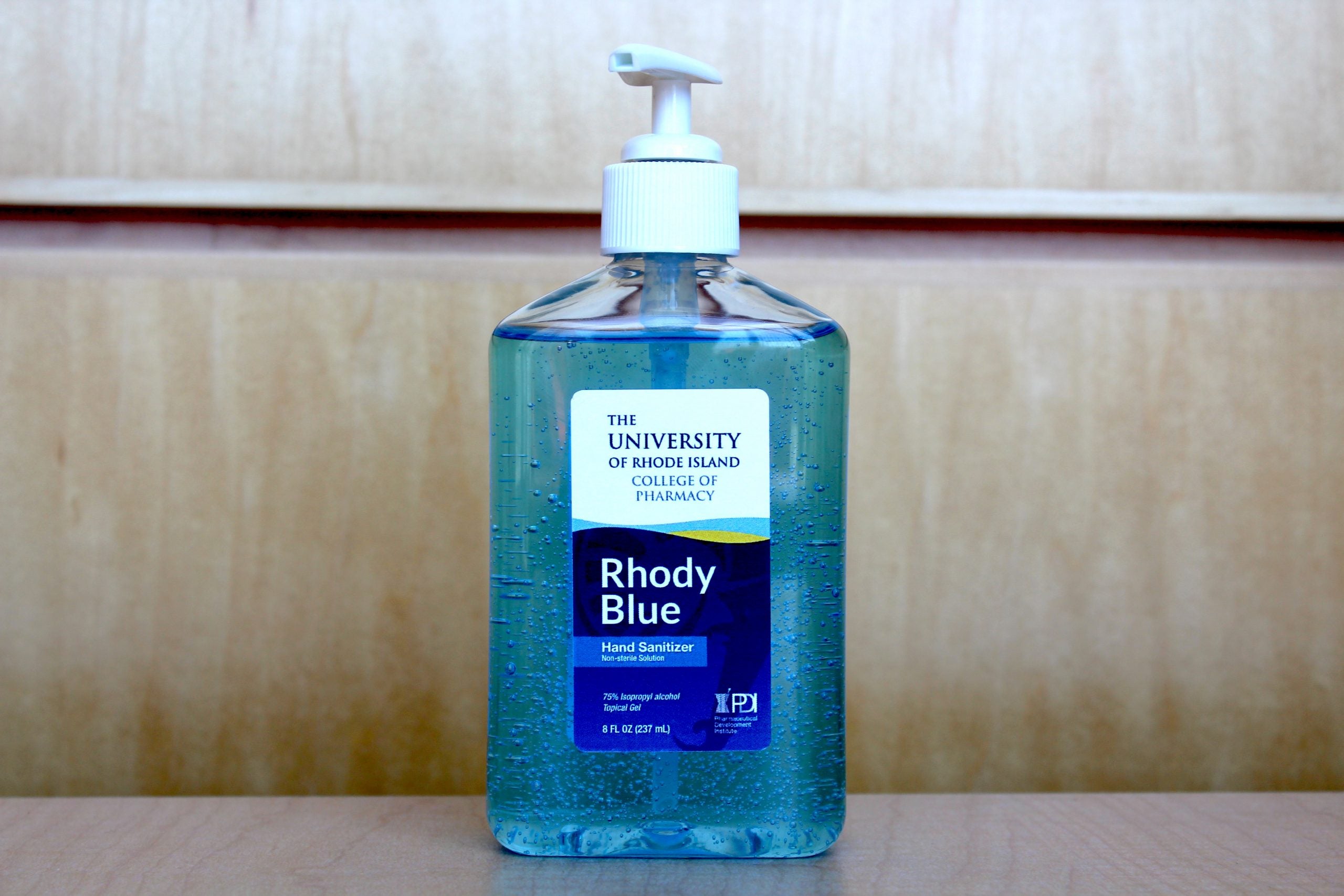The College of Pharmacy institute’s sanitizer to supply campus, Department of Corrections facilities
Aiming to fill local shortages and meet growing demand to help slow the spread of COVID-19 (novel coronavirus), the University of Rhode Island Pharmaceutical Development Institute has begun producing its own line of hand sanitizer in its labs in the College of Pharmacy.
Scientists in the Institute have begun producing Rhody Blue and Rhody Clear hand sanitizer, which contain 75% isopropyl alcohol. The Rhode Island Department of Health certified the Institute to produce the sanitizer as the growing coronavirus crisis has led to empty shelves in many stores. It will be produced and bottled in the labs in Avedisian Hall, the College’s home on URI’s Kingston campus. URI Health Services is partnering in the effort.
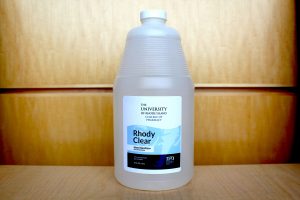 “Like all health care professionals, we’re deeply concerned about the virus and want to do everything we can to help slow it’s spread,” Pharmacy Dean Paul Larrat said. “We have the expertise and the labs here in the College to properly produce hand sanitizer to FDA (U.S. Food and Drug Administration) standards, so this is one small way we can help with the monumental, ongoing response to this pandemic.”
“Like all health care professionals, we’re deeply concerned about the virus and want to do everything we can to help slow it’s spread,” Pharmacy Dean Paul Larrat said. “We have the expertise and the labs here in the College to properly produce hand sanitizer to FDA (U.S. Food and Drug Administration) standards, so this is one small way we can help with the monumental, ongoing response to this pandemic.”
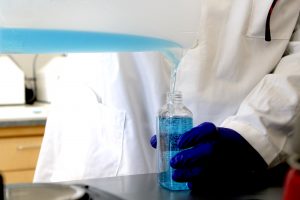 The Institute has begun filling 8-ounce bottles of Rhody Blue gel sanitizer for distribution throughout the URI campus. In addition, the Institute is producing Rhody Clear liquid hand sanitizer for the state Department of Corrections in half-gallon bottles for use in its facilities.
The Institute has begun filling 8-ounce bottles of Rhody Blue gel sanitizer for distribution throughout the URI campus. In addition, the Institute is producing Rhody Clear liquid hand sanitizer for the state Department of Corrections in half-gallon bottles for use in its facilities.
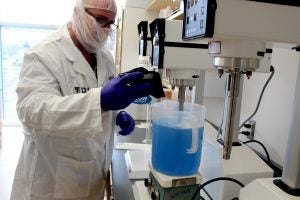
“Cooperation among agencies is critical to Rhode Island’s response to the COVID-19 crisis, and we are very grateful to URI for their assistance to us as we work to keep our staff and inmates safe,” said Department of Corrections Director Patricia A. Coyne-Fague.
Institute Acting Director Cathy Curtin-Miller applauded the efforts of the PDI staff and faculty members for taking an active role in the local response to the COVID-19 outbreak.
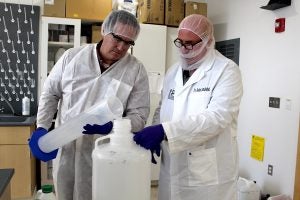
“A demand for hand sanitizer was expressed from the University and from some of our external partners, so we put an emergency response team together to help meet the need,” Curtin-Miller said. “Staff members have selflessly volunteered to be part of the response effort to the virus, led by Saleh Allababidi, our senior development scientist and a faculty member with the College.”
Besides frequently washing hands, using hand sanitizer is among the best strategies to help prevent person-to-person transmission of COVID-19, the disease caused by the novel coronavirus.
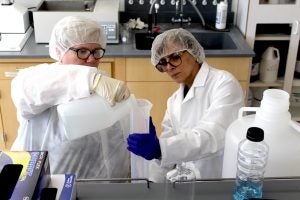
“Washing your hands with soap and water for at least 20 seconds is essential and the best defense,” said Charles McGovern, manager of the Institute. “If soap and water are not readily available, the Centers for Disease Control and Prevention recommends the use of alcohol-based hand sanitizers containing at least 60 percent alcohol. Given the shortages in stores throughout the region, PDI’s goal is to supply the URI community with hand sanitizing agents.”

